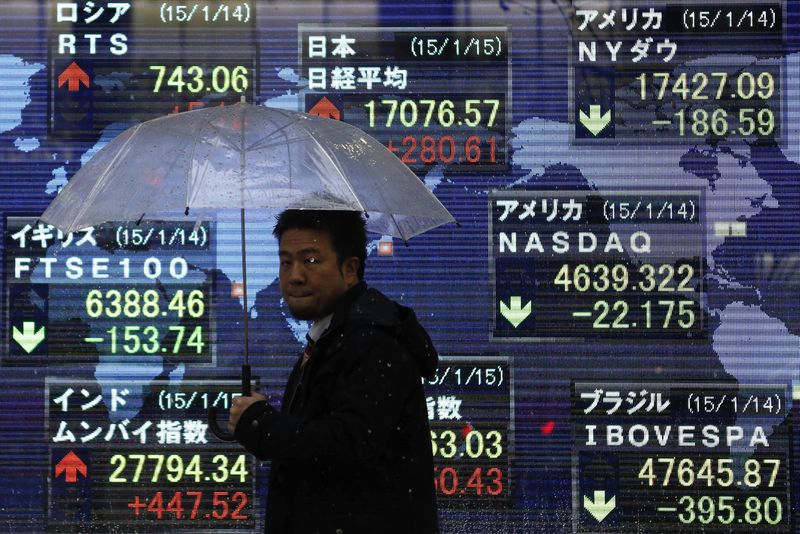By Adam Claringbull
Investing.com – Asian Pacific markets were mostly down on Thursday morning, with U.S. COVID-19 stimulus looking increasingly unlikely before their elections and the rapid spread of COVID-19, especially in Europe. Increased U.S.-China tension is also a negative for investor confidence.
The Shanghai Composite inched down 0.08% at 11:05 PM ET (3:05 AM GMT) and Shenzhen’s SZSE Composite edged down 0.14%.
Chinese data released earlier in the day showed that the consumer price index gained 1.7% year-on-year in September, down from the predicted 1.8% rise and August’s 2.4% growth. The country's producer price index fell 2.1% year-on-year, more than the forecast 1.8% fall and the 2% fall reported in August.
Japan’s Nikkei 225 was down 0.69% and South Korea’s KOSPI fell 0.83%.
Hong Kong’s Hang Seng Index slid 1.15%.
Australia’s S&P/ASX 200 gained 0.78%, on the back of Reserve Bank of Australia (RBA) Governor Philip Lowe teasing possible rate cuts and bond buying as potential policy support tools.
The poor outlook for an agreement on U.S. COVID-19 relief measures dogged U.S. markets in the last session and negative sentiment spilled over into early Asian Pacific trading. Talks between U.S. House Speaker Nancy Pelosi and Treasury Secretary Steven Mnuchin are currently deadlocked ahead of the presidential elections.
U.S. Treasury Secretary Steven Mnuchin had this to say: “The clock will not stop ... I’d say, at this point, getting something done before the election and executing on that would be difficult, just given where we are in the level of details, but we’re going to try to continue to work through these issues.”
“This has been an ongoing drama ...the latest twist I heard is nothing is going to get done until the election. That’s why I think you’re getting the market selling off a little bit," Paul Nolte, portfolio manager at Kingsview Investment Management, told Bloomberg.
In Europe, the COVID-19 pandemic is resurging across the region, with major economies beginning to put in place stricter containment measures. Germany, France, the U.K., and others are in the process of instituting measures such as school closures, limited lockdowns, and other systems intended to reduce the infection spread. In consequence, expectations of economic recovery are being sharply limited, leading to further investor disenchantment.
Developments in the U.S.-China ongoing tensions are also cause for downward pressure, with the U.S. State Department proposing that the Trump administration place China’s Ant Group Hong Kong IPO on a trade blacklist. Ant Group is the financial technology arm of Alibaba (NYSE:BABA).
In further European news, Brexit talks are being stepped up to attempt to reach a deal by Jan. 1, 2021. The framework for the deal was supposed to be completed this week, under U.K. Prime Minister Boris Johnson’s self-imposed Oct.15 deadline, but may now be extended.
Global COVID-19 cases have reached 38.4 million, with deaths at 1.09 million, according to Johns Hopkins University data.
